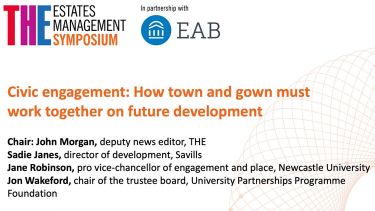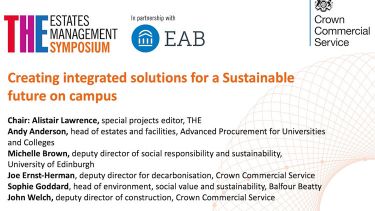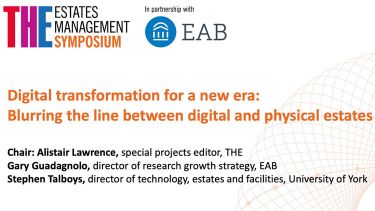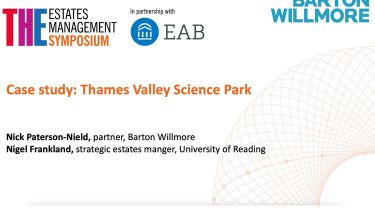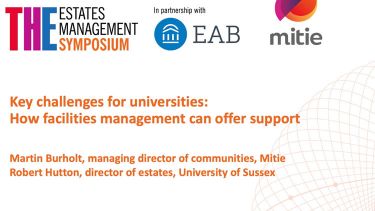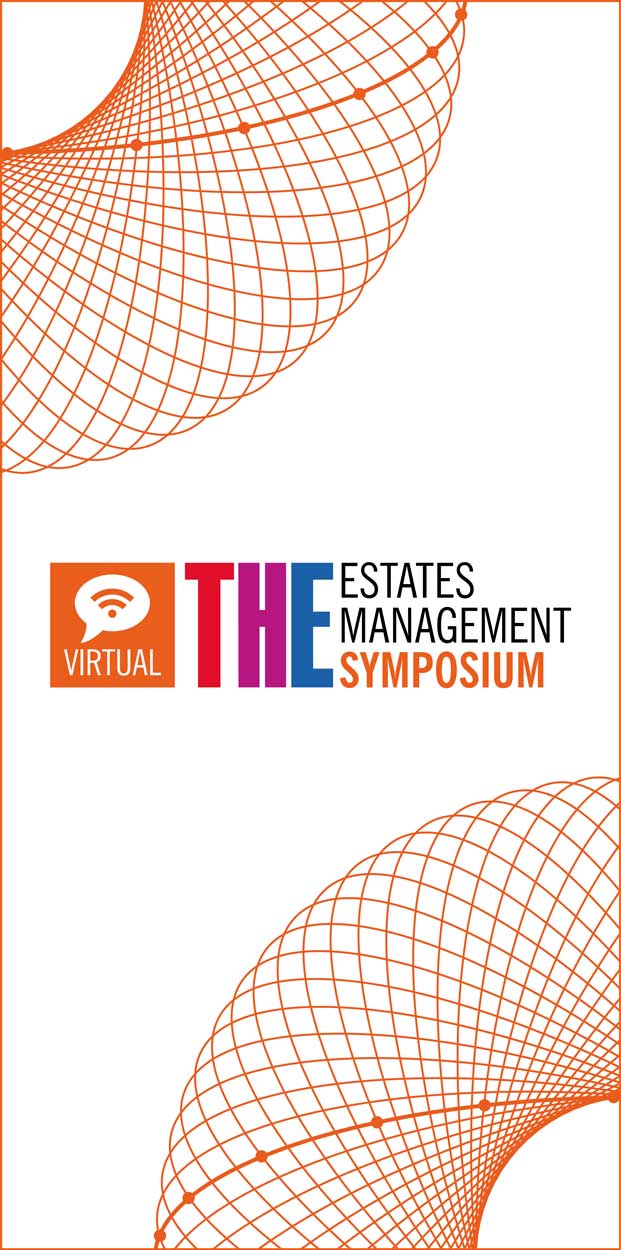Inclusive decision-making can help estates managers meet the needs of a post-Covid generation
After making the emergency transition to remote teaching last year, universities in the UK and beyond face new challenges in safely opening up campuses to staff and students as the pandemic recedes.
At a THE Estates Management Symposium session, hosted in partnership with Savills, representatives from academia and industry met to discuss strategies going forward.
First and foremost, the panellists agreed that the priority for university managers was to ensure that campus buildings were “fit for purpose” – a phrase that has taken on additional meaning since Covid-19.
“We are trying to make our spaces as large, as practical and as naturally ventilated as possible,” explained Donna Vallance, director of estates and campus services at the University of the West of Scotland.
Vallance’s institution has also taken the opportunity to “rethink” its existing classrooms and offices to create more open-plan, outdoor and shared spaces where possible. “If there’s a silver lining to Covid, it’s that we’ve got time to do these things,” she said.
Involving students in decision-making is key to ensuring that campus spaces work for everyone, said Stephen Wells, director of estates, facilities and commercial services at the University of Surrey. “We have also been working on a number of projects since before Covid, talking to students about what they need and want,” he added.
One such project is “My Surrey Nest”, a breakout space designed as an “alternative to the library”, Wells explained. “It’s still very much a learning and supportive space but with a more relaxed set-up and variety of furniture.”
Both panellists discussed how providing a variety of spaces – offering “breakout zones” and specific areas for quiet study, for example – was increasingly important in ensuring that campuses were inclusive and well utilised.
The safe use of student data can help estate managers, both in terms of keeping users socially distanced and determining spatial demand. “We can access how many devices are using the wi-fi in one area,” said Vallance. “That enables us to dispatch security to move some people on if there are too many and keep it Covid-secure.”
A poll of 14- to 18-year-olds, undertaken by Savills, found that access to daylight was the biggest priority in terms of what future students wanted from their learning spaces. Access to refreshments and outdoor spaces were also priorities.
“The pandemic has shown us that we can be agile, no longer chained to a desk,” reflected Katrina Kostic Samen, head of workplace strategy and design at Savills. “The digital transition…means listening to students and being able to react quickly to these needs.”
Watch the session on demand above or on the THE Connect YouTube channel.
Find out more about Savills and higher education.
